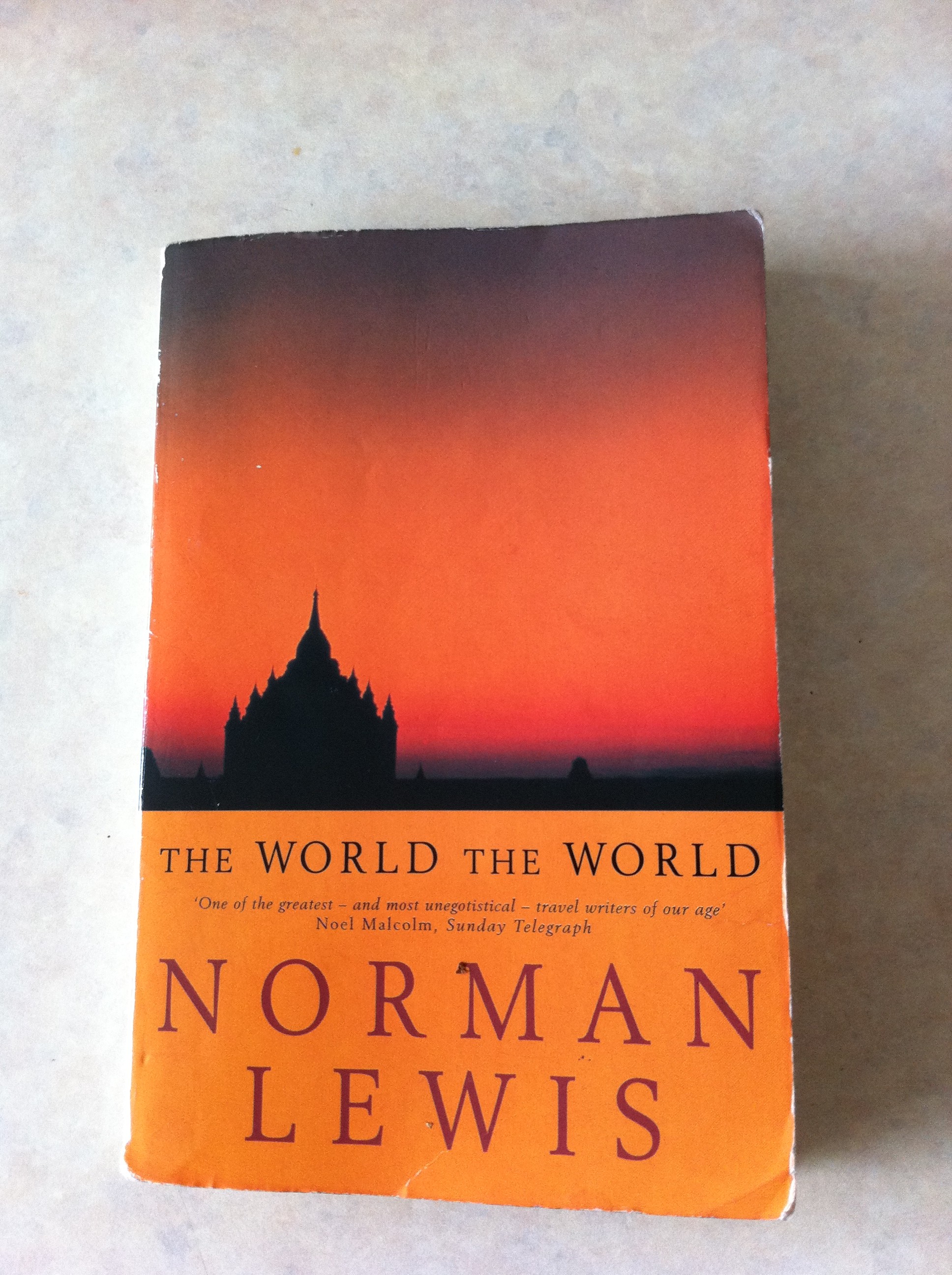The World The World, by Norman Lewis
Norman Lewis is one of the most prolific, and best, travel writers of the 20th Century. The World The World is his second autobiography and here he talks about the places he lived, the background of some of his travels and as life as an author. It is a fascinating insight into places that are now well-known to us, but were barely heard of beyond their borders in Lewis's time: he visits Guatemala, Peru, Brazil, Vietnam, Burma, Ibiza, the Spanish Coast and... Essex. As an aspiring writer and journalist, the insights into his work and life structure were particularly fascinating to me.

His style is un-intimidating and accessible, frequently humorous without tedious, overly-descriptive passages. Instead, the places he visits come to life through multi-sensual experiences, unique anecdotes and interactions with the people that live there. He has an extraordinary ability to ingratiate himself with locals, and his observational descriptions of their appearance and behaviour give a flavour to each destination. By providing context to situations he comes across, rather than reams of historical fact, the reader learns almost by accident, revealing the past as the shaper of the present. And wonderful nuances of a bygone age take the reader into his life: the letters of introduction; lunches with publicists discussing trips to Eastbourne; trying to find a writing bolt-hole. Everyone he comes across is a fascinating character, from a government guide in Peru to the cleaning lady in Tenby who sings a hymn upon entering his house as a "prophylactic against evil."
His discussions on the murky world of publishing are fascinating, as are his observations of writers and their intermittent megalomania. He interacts with some of the greatest men of literature: his meeting with Hemingway in Cuba is tinged with sadness, and Ian Fleming of the James Bond novels comes across as a man of complexity, with characteristics of his most famous creation. Lewis feels "compelled," in his autobiography, "to give feelings on subjects," but there is no navel-gazing - the way he deals with aspects of his life that others would find earth-shattering are wonderful in their self-effacement: when he discovers that his estranged wife has married a Mexican, he "therefore married an old friend who had helped [him] manage his books," and carries on with barely an interruption.
Lewis makes the most mundane of places seem compelling: the thumping of a pile-driver as Selfridges is re-built sounds like an event to behold; his description of Essex (now best known for inflated egos and implants) makes it sounds like a magical wonderland. He reminds me of a friend who could make a bus journey from Waterloo to Angel sound like a once-in-a-lifetime trip, and his aim of "finding something new and not featured in travel guides" will inspire the spirit of adventure in every reader. He also discusses the impact of development and tourism through direct experience: the Ibiza of his stay is unrecognisable today, when it had "more in common with North Africa than mainland Europe,"; and his return to Spain, Thailand and Goa, 20 years after his first visits, showed the impact of outsiders' money on locals long before Stacey Dooley did.
Norman Lewis is a giant in the field of travel literature, and for good reason. I am now looking forward to reading plenty more of the great man's books, but I would recommend The World The World to anyone with an interest beyond their front door.